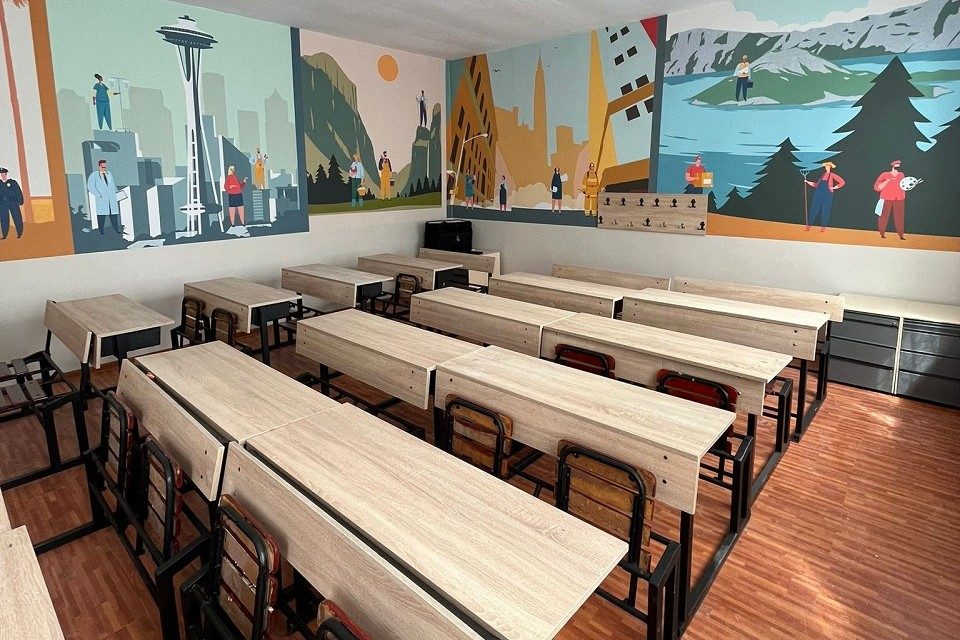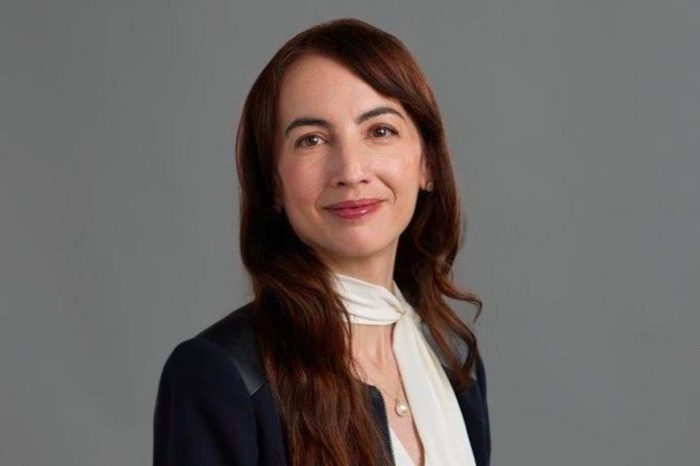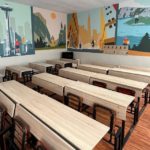ROCA Industry finances the transformation of the Sălcioara School into a Narada education project

ROCA Industry launches The Industry of Good Deeds – a platform for projects with real community impact, part of the group’s sustainability strategy. As part of the first project, the companies within the holding provide funds of 50,000 euros, high-quality construction materials and know-how from the group’s teams to support the future transformation of Sălcioara Middle School, in Ialomița County, starting from the 2023-2024 school year.
The transformation project, carried out during the summer with the support of the ROCA Industry companies – BICO Industries, EVOLOR, DIAL, ECO EURO DOORS, ELECTROPLAST – aimed not only at improvements in the classroom area, but also at the creation of multifunctional spaces, equipped with new furniture, modern equipment and thematic design to meet the development needs of a stimulating educational environment, generating long-term value in the community. Also, ROCA Industry donated, through its companies, construction materials such as paints, thinners, fence panels, rectangular poles, doors and other materials needed for renovation, produced in high-performing factories in Romania.
The call for the renovation of the school unit in Sălcioara was launched by the Narada Organization, through the HartaEdu platform, which maps the needs of schools in Romania and mobilizes local communities and the business environment to provide support, as the organization’s mission is to improve the educational act in our country.
“In business, but also in our projects addressed to the community, we aim to make strategic investments, develop solid relationships and synergies that bring performance and development perspectives. We are launching the Industry of Good Deeds platform, convinced that what is important is not only what needs to be done, but also how it is done, in order to create real long-term value. In this way, we engage in nurturing champions right from the school benches, providing essential financial resources, high-quality materials produced in our factories and long-term sustainable construction and thinking know-how, for the future transformation of this school,” declared Ionuț Bindea, CEO of ROCA Industry.
What education looks like in rural areas: 80 percent of students experience the fear of expressing themselves due to the fear of being labeled within the group.
A diagnostic analysis carried out by the Narada Organization for the School in Sălcioara shows that 50 percent of the students are dissatisfied with the relationships they have with their peers and teachers, while 65 percent say that they find it difficult to make friends – and 80 percent have concerns about expressing themselves, for fear of being labeled within the group. These data reflect the reality of schools located in the villages and rural areas of Romania, where the lack of funding translates into significant deficiencies in this system of education and socio-emotional development. Furthermore, the effects are felt in the job market across all fields of activity, from industry to IT.
The project’s approach aims to bring benefits to the educational process and improve academic performance, making activities tailored to the individual needs of each student possible, stimulating collaboration, communication, and adapting the teaching process differentially for students at high risk of academic failure or those with learning difficulties. The initiative belongs to the Narada Organization, which is the project coordinator, and the funds are donated by ROCA Industry companies, with the support of the Impetum Foundation.
At national level, 15 percent of the total population aged 18-24 interrupts their education, with Romania’s education system ranking first in the European Union for early school dropout, according to the most recent Eurostat data.
“We aim for this project not to remain a singular initiative but a positive example that can be replicated because Romania’s chance to grow lies in highlighting successful models and creating systems that can adopt and multiply these models. Romania can and must develop regional champions, and education is a necessary step in achieving this,” stated Ionuț Bindea.














